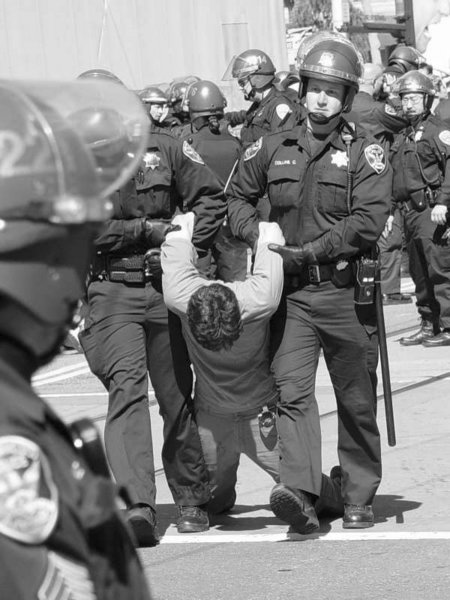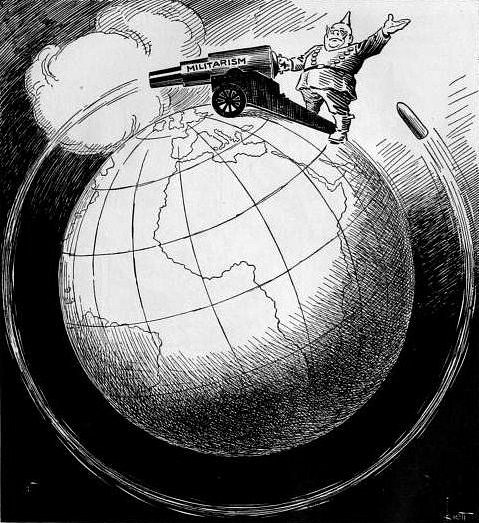|
Pacificism
Pacificism is the general term for ethical opposition to violence or war unless force is deemed necessary. Together with pacifism, it is born from the Western tradition or attitude that calls for peace. The latter involves the unconditional refusal to support violence or absolute pacifism, but pacificism views the prevention of violence as its duty but recognizes the controlled use of force to achieve such objective. According to Martin Ceadel, pacifism and pacificism are driven by a certain political position or ideology such as liberalism, socialism or feminism. Ceadel has categorized pacificism among positions about war and peace, ordering it among the other categories: * Militarism (violence normalized) * Crusading ( interventionism; violence used as a tool) * Defensivism (violence prevention) * Pacificism (violence prevention and abolition) * Pacifism (violence rejection) Development Pacificism ranges between total pacifism, which usually states that killing, violence or ... [...More Info...] [...Related Items...] OR: [Wikipedia] [Google] [Baidu] |
Pacifism
Pacifism is the opposition to war or violence. The word ''pacifism'' was coined by the French peace campaigner Émile Arnaud and adopted by other peace activists at the tenth Universal Peace Congress in Glasgow in 1901. A related term is ''ahimsa'' (to do no harm), which is a core philosophy in Hinduism, Buddhism, and Jainism. While modern connotations are recent, having been explicated since the 19th century, ancient references abound. In modern times, interest was revived by Leo Tolstoy in his late works, particularly in '' The Kingdom of God Is Within You''. Mahatma Gandhi propounded the practice of steadfast nonviolent opposition which he called " satyagraha", instrumental in its role in the Indian independence movement. Its effectiveness served as inspiration to Martin Luther King Jr., James Lawson, Mary and Charles Beard, James Bevel, Thích Nhất Hạnh,"Searching for the Enemy of Man", in Nhat Nanh, Ho Huu Tuong, Tam Ich, Bui Giang, Pham Cong Thien. ''Dialog ... [...More Info...] [...Related Items...] OR: [Wikipedia] [Google] [Baidu] |
Ethical
Ethics is the philosophical study of moral phenomena. Also called moral philosophy, it investigates normative questions about what people ought to do or which behavior is morally right. Its main branches include normative ethics, applied ethics, and metaethics. Normative ethics aims to find general principles that govern how people should act. Applied ethics examines concrete ethical problems in real-life situations, such as abortion, treatment of animals, and business practices. Metaethics explores the underlying assumptions and concepts of ethics. It asks whether there are objective moral facts, how moral knowledge is possible, and how moral judgments motivate people. Influential normative theories are consequentialism, deontology, and virtue ethics. According to consequentialists, an act is right if it leads to the best consequences. Deontologists focus on acts themselves, saying that they must adhere to duties, like telling the truth and keeping promises. Virtue ... [...More Info...] [...Related Items...] OR: [Wikipedia] [Google] [Baidu] |
Antimilitarism
Antimilitarism (also spelt anti-militarism) is a doctrine that opposes war, relying heavily on a critical theory of imperialism and was an explicit goal of the First and Second International. Whereas pacifism is the doctrine that disputes (especially between countries) should be settled without recourse to violence, Paul B. Miller defines anti-militarism as "ideology and activities...aimed at reducing the civil power of the military and ultimately, preventing international war". Cynthia Cockburn defines an anti-militarist movement as one opposed to " military rule, high military expenditure or the imposition of foreign bases in their country". Martin Ceadel points out that anti-militarism is sometimes equated with pacificism—general opposition to war or violence, except in cases where force is deemed necessary to advance the cause of peace.Martin Ceadel, ''Thinking about peace and war''. Oxford, Oxford University Press, 1987. , p. 101. Distinction between antimilitarism and p ... [...More Info...] [...Related Items...] OR: [Wikipedia] [Google] [Baidu] |
Violence Begets Violence
The phrase "violence begets violence" (or "hate begets hate") means that violent behaviour promotes other violent behaviour, in return. The phrase has been used since the early 19th century. Violence begets violence is a concept described in the Gospel of Matthew, verse 26:52. The passage depicts a disciple (identified in the Gospel of John as Peter) drawing a sword to defend against the arrest of Jesus but being told to sheath his weapon: "Put your sword back in its place," Jesus said to him, " for all who draw the sword will die by the sword."Matthew 26:52, New International Version. Words by Martin Luther King Jr. Martin Luther King Jr. (1929–1968) used the phrase when saying: See also * Christian anarchism * Cycle of violence * Turning the other cheek * Mitzvah goreret mitzvah * Blowback * Security dilemma In international relations, the security dilemma (also referred to as the spiral model) is when the increase in one state's security (such as increasing i ... [...More Info...] [...Related Items...] OR: [Wikipedia] [Google] [Baidu] |
Turning The Other Cheek
Turning the other cheek is a phrase in Christian doctrine from the Sermon on the Mount that refers to responding to insult without retort. This passage is variously interpreted as accepting one's predicament, commanding nonresistance or advocating Christian pacifism. Scriptural references The phrase originates from the Sermon on the Mount in the New Testament. In the Gospel of Matthew Matthew 5, chapter 5, an alternative for "eye for an eye, an eye for an eye" is given by Jesus: In the Sermon on the Plain in the Gospel of Luke Luke 6, chapter 6, as part of his command to "love your enemies", Jesus says: Interpretations This phrase, as with much of the Sermon on the Mount, has been subject to both literal and figurative Sermon on the Mount#Interpretations, interpretations. Christian anarchist interpretation According to this interpretation the passages call for total nonresistance to the point of ''facilitating'' aggression against oneself, and since human governments defend ... [...More Info...] [...Related Items...] OR: [Wikipedia] [Google] [Baidu] |
Self-defence In International Law
International law recognizes a right of self-defense according to the Chapter VII, Article 51 of the UN Charter, as the International Court of Justice (ICJ) affirmed in the '' Nicaragua Case'' on the use of force. Some commentators believe that the effect of Article 51 is only to preserve this right when an armed attack occurs, and that other acts of self-defence are banned by article 2(4).Randelzhofer, ''Article 2(4) in'' The Charter of the United Nations: A Commentary (1994). Another view is that Article 51 acknowledges the previously existing customary international law right and then proceeds to lay down procedures for the specific situation when an armed attack does occur. Under the latter interpretation, the legitimate use of self-defence in situations when an armed attack has not actually occurred is still permitted, as in the ''Caroline'' case noted below. Not every act of violence will constitute an armed attack. The ICJ has tried to clarify, in '' Nicaragua Case'', what ... [...More Info...] [...Related Items...] OR: [Wikipedia] [Google] [Baidu] |
Peace Movement
A peace movement is a social movement which seeks to achieve ideals such as the ending of a particular war (or wars) or minimizing inter-human violence in a particular place or situation. They are often linked to the goal of achieving world peace. Some of the methods used to achieve these goals include advocacy of pacifism, nonviolent resistance, diplomacy, boycotts, peace camps, ethical consumerism, supporting anti-war political candidates, supporting legislation to remove profits from government contracts to the military–industrial complex, Gun politics in the United States, banning guns, creating tools for open government and government transparency, transparency, direct democracy, supporting whistleblowers who expose war crimes or false flag, conspiracies to create wars, Demonstration (people), demonstrations, and Interest group, political lobbying. The political cooperative is an example of an organization which seeks to merge all peace-movement and green organizations; t ... [...More Info...] [...Related Items...] OR: [Wikipedia] [Google] [Baidu] |
Nonviolent Resistance
Nonviolent resistance, or nonviolent action, sometimes called civil resistance, is the practice of achieving goals such as social change through symbolic protests, civil disobedience, economic or political noncooperation, satyagraha, constructive program, or other methods, while refraining from violence and the threat of violence. This type of action highlights the desires of an individual or group that feels that something needs to change to improve the current condition of the resisting person or group. Mahatma Gandhi is the most popular figure related to this type of protest; United Nations celebrates Gandhi's birthday, October 2, as the International Day of Non-Violence. Other prominent advocates include Abdul Ghaffar Khan, Henry David Thoreau, Etienne de la Boétie, Charles Stewart Parnell, Te Whiti o Rongomai, Tohu Kākahi, Leo Tolstoy, Alice Paul, Martin Luther King Jr., Daniel Berrigan, Philip Berrigan, James Bevel, Václav Havel, Andrei Sakharov, Lech Wałę ... [...More Info...] [...Related Items...] OR: [Wikipedia] [Google] [Baidu] |
Nonviolence
Nonviolence is the personal practice of not causing harm to others under any condition. It may come from the belief that hurting people, animals and/or the environment is unnecessary to achieve an outcome and it may refer to a general philosophy of abstention from violence. It may be based on moral, Religion, religious or spiritual principles, or the reasons for it may be strategy, strategic or pragmatic ethics, pragmatic. Failure to distinguish between the two types of nonviolent approaches can lead to distortion in the concept's meaning and effectiveness, which can subsequently result in confusion among the audience. Although both principled and pragmatic nonviolent approaches preach for nonviolence, they may have distinct motives, goals, philosophies, and techniques. However, rather than debating the best practice between the two approaches, both can indicate alternative paths for those who do not want to use violence. Nonviolence has "active" or "activist" elements, in that ... [...More Info...] [...Related Items...] OR: [Wikipedia] [Google] [Baidu] |
Nonkilling
Nonkilling refers to the absence of killing, threats to kill, and conditions conducive to killing in human society. It traces its origin from the broader concept of ahimsa or nonviolence, one of the central tenets of Indian religions, namely, Jainism, Hinduism, and Buddhism, where it includes all sentient life forms. This is also the case for the traditional use of the term "nonkilling" (or "non-killing") as part of Buddhist ethics, as expressed in the first precept of the Pancasila, and in similar terms throughout world spiritual traditions (see Nonkilling studies). While it is typically extended to include the killing of animals and other forms of life, the use of the term in political and academic contexts refers mostly to the killing of human beings. The term was popularised as a modern political concept in the 2002 book '' Nonkilling Global Political Science'' by Glenn D. Paige. Significantly, "nonkilling" was used in the "Charter for a World without Violence" approved ... [...More Info...] [...Related Items...] OR: [Wikipedia] [Google] [Baidu] |
Détente
''Détente'' ( , ; for, fr, , relaxation, paren=left, ) is the relaxation of strained relations, especially political ones, through verbal communication. The diplomacy term originates from around 1912, when France and Germany tried unsuccessfully to reduce tensions. The term is often used to refer to a period of general easing of geopolitical tensions between the Soviet Union and the United States during the Cold War. ''Détente'' began in 1969 as a core element of the foreign policy of U.S. president Richard Nixon. In an effort to avoid an escalation of conflict with the Eastern Bloc, the Nixon administration promoted greater dialogue with the Soviet government in order to facilitate negotiations over arms control and other bilateral agreements. ''Détente'' was known in Russian as (), loosely meaning "relaxation of tension". History Cold War While the recognized era of ''détente'' formally began under the Richard Nixon presidency, there were prior instances of relat ... [...More Info...] [...Related Items...] OR: [Wikipedia] [Google] [Baidu] |








